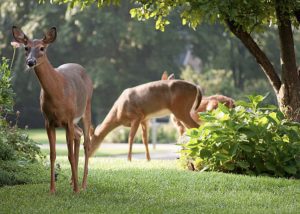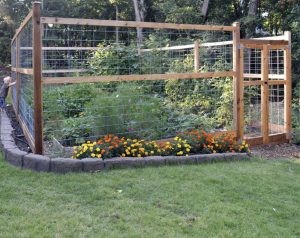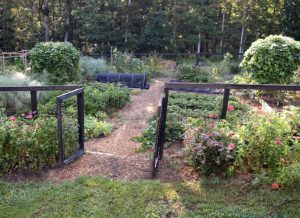Gardening on Vancouver Island is a peaceful and fulfilling activity until you find your hard work undone by pesky animals like deer, rabbits, birds, and squirrels. These common culprits can wreak havoc on your vegetable and flower gardens, causing frustration and disappointment. But keep pursuing your gardening dreams! This article will dive into various prevention methods to keep those critters at bay and share which plants and vegetables are their favourite targets. So get ready to learn how to protect your garden and enjoy a flourishing harvest.
Attention Vancouver Island residents! Are you looking for breathtaking commercial landscaping services? Look no further than IslandEarth Landscape Company! Their experts specialize in creating and maintaining landscapes that can endure the Island’s natural elements. Whether it’s garden installation, designing irrigation systems, or hardscaping, the IslandEarth team has covered you. Plus, they use eco-friendly and sustainable practices to ensure their work has minimal environmental impact. With IslandEarth Landscape Company, you can finally have the outdoor space of your dreams without worrying about wildlife destruction.

Types of Plants and Vegetables Commonly Damaged
Different animals have different tastes and feeding habits, so knowing which plants and vegetables are commonly targeted by each species is essential. Here are some examples:
- Deer: Roses, hostas, fruit trees, and vegetable gardens (lettuce, beans, peas, etc.)
- Rabbits: Lettuce, beans, peas, carrots, and small fruit bushes
- Birds: Berries, fruits, and vegetable gardens (lettuce, corn, etc.)
- Squirrels: Tomatoes, pumpkins, and fruit trees

Methods to Prevent Animal Damage
Several methods can be used to prevent animal damage to your gardens, each with pros and cons. Here are some examples:
- Fencing: This is the most effective method for keeping out deer and rabbits, but it can be expensive and may need to be more aesthetically pleasing. A fence at least eight feet tall is recommended for deer. For rabbits, a fence at least two feet tall and buried at least six inches underground can be effective.
- Repellents: Many natural and chemical repellents can deter animals from your gardens. These can be sprayed directly on plants or used as a perimeter barrier. Examples of natural repellents include garlic, hot peppers, and predator urine. Chemical repellents include deer and rabbit repellent sprays that contain bitter-tasting chemicals.
- Scare Tactics: Visual and sound-based scare tactics can deter birds and squirrels effectively. Examples include shiny objects, reflective tape, and bird scarers that emit loud noises or predator calls.
- Companion Planting: Planting certain plants next to each other can help to deter pests. For example, planting marigolds or garlic next to vegetables can help to repel deer and rabbits.
- Netting: This can keep birds and squirrels away from fruit trees and berry bushes. However, it can be challenging to install and may be unsightly.

Conclusion
Say goodbye to pesky animal damage in your garden! Don’t let their nibbling ways ruin your hard work. With a wealth of prevention methods available, you can protect your beloved plants and veggies from furry pests. Learn which plants are most susceptible and which methods work best. Your garden will flourish, and you’ll feel like a master gardener in no time.